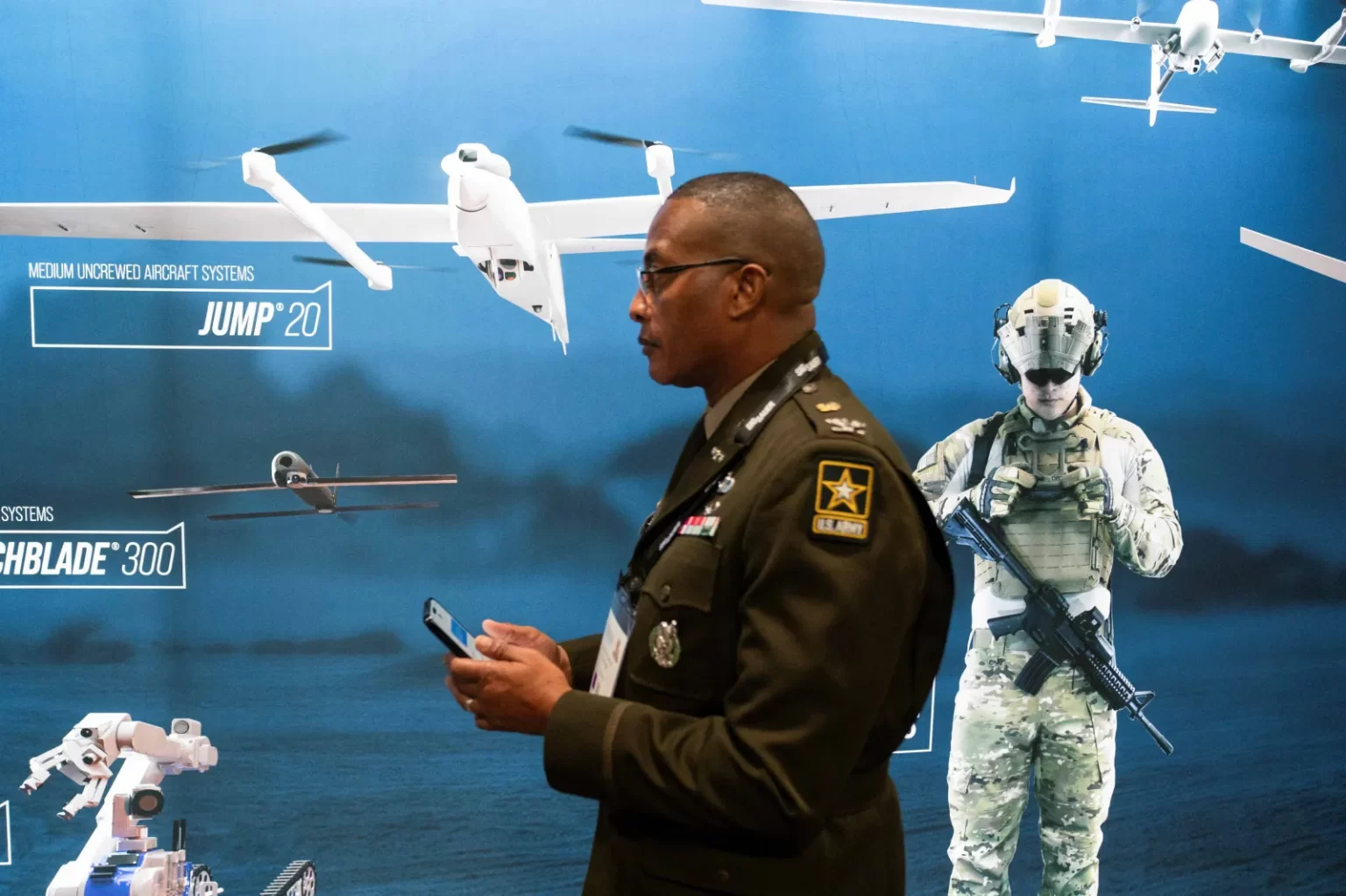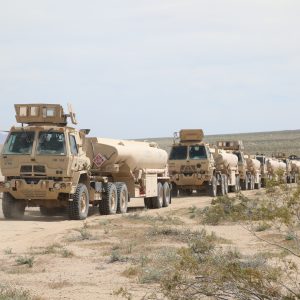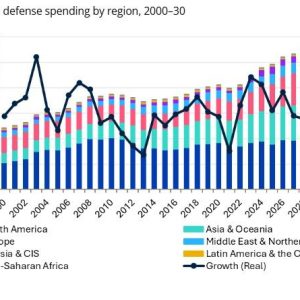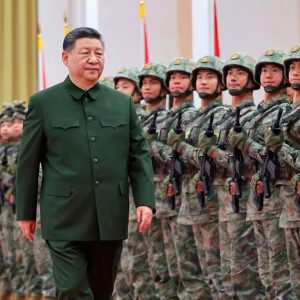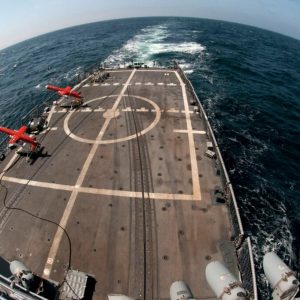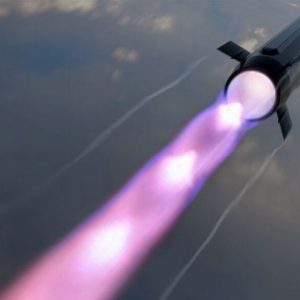The Transformative Role of AI in Global Conflict and Diplomacy. Artificial Intelligence (AI) is no longer confined to the realms of technology labs or futuristic imagination. It has become a driving force in shaping modern geopolitics, transforming the paradigms of both warfare and diplomacy. As nations race to harness AI’s potential, its impact on security strategies, international relations, and global stability grows increasingly profound.
The Evolution of AI in Defense: From Concept to Reality
Early Integration of AI in Military Operations
The journey of AI in defense began with automated systems designed to streamline logistics and improve operational efficiency. However, the technology quickly progressed, integrating into command and control systems, surveillance platforms, and precision weaponry. For example:
- Unmanned Aerial Vehicles (UAVs): AI-driven drones revolutionize reconnaissance missions, offering real-time data analysis and autonomous decision-making capabilities.
- Predictive Maintenance Systems: Machine learning algorithms predict equipment failures, ensuring operational readiness and cost efficiency.
The Rise of Lethal Autonomous Weapon Systems (LAWS)
A significant milestone in AI’s military evolution is the development of LAWS, capable of selecting and engaging targets without human intervention. These systems spark intense ethical debates, with proponents arguing their precision reduces collateral damage, while critics warn of potential escalation risks and the erosion of human accountability in warfare.
AI in Cyber Warfare
The cyber domain represents a critical battleground where AI plays a dual role. Defensive AI tools detect and neutralize cyber threats in real-time, while offensive systems execute highly targeted attacks, often leveraging adversaries’ own AI systems to gain an advantage.
AI’s Role in Shaping Modern Warfare
Decision-Making and Strategic Planning
AI enhances decision-making processes by providing commanders with detailed analytics, simulation-based insights, and predictive modeling. These tools allow for:
- Scenario Planning: Simulating potential outcomes of military actions to identify optimal strategies.
- Intelligence Analysis: Aggregating and interpreting vast datasets to uncover actionable intelligence.
Hybrid Warfare and Information Dominance
Modern conflicts extend beyond traditional battlefields into the realms of disinformation campaigns, economic manipulation, and psychological operations. AI-powered systems analyze social media trends, identify propaganda networks, and even create counter-narratives to maintain information dominance.
Logistical Superiority
AI-driven supply chain management ensures that resources are allocated efficiently and responsively. From real-time tracking of shipments to predictive demand forecasting, AI enables militaries to sustain prolonged operations with minimal disruptions.
Ethical Implications and Global Challenges
AI Arms Race: A New Dimension of Competition
As nations compete to develop cutting-edge AI technologies, the risk of an AI arms race becomes a pressing concern. The absence of comprehensive international regulations exacerbates this issue, potentially destabilizing global security. Key challenges include:
- Proliferation of AI Weapons: Ensuring that advanced AI systems do not fall into the hands of rogue states or non-state actors.
- AI Miscalculation Risks: Autonomous systems could misinterpret signals, leading to unintended escalations or conflicts.
Accountability in AI-Driven Warfare
Who bears responsibility when an AI system causes unintended harm? This question underscores the need for transparent algorithms and robust oversight mechanisms to ensure accountability remains intact.
Human-Machine Collaboration
While AI can augment human capabilities, over-reliance on autonomous systems may lead to the erosion of critical human judgment in high-stakes scenarios. Balancing human oversight with AI efficiency is crucial to maintaining ethical and strategic integrity.
AI in Diplomacy: Opportunities for Peacebuilding
Facilitating Conflict Resolution
AI tools facilitate data-driven diplomacy, helping negotiators identify common ground and predict the long-term implications of agreements. Machine learning models analyze historical conflicts, providing insights into successful peacekeeping strategies.
Strengthening International Cooperation
AI enables real-time communication and data sharing among allies, fostering collaboration on global challenges such as climate change, pandemic response, and counter-terrorism efforts. The establishment of AI governance frameworks could further strengthen international partnerships.
Mitigating Risks of Miscommunication
AI-powered translation tools and sentiment analysis systems bridge linguistic and cultural gaps, reducing the likelihood of misunderstandings in diplomatic exchanges. This technological bridge enhances mutual trust and accelerates consensus-building.
Case Studies: AI’s Impact on Geopolitical Dynamics
The United States and China: Strategic Rivalry
The competition between the United States and China exemplifies the pivotal role of AI in reshaping global power structures. Both nations invest heavily in:
- Military AI Projects: From advanced surveillance systems to hypersonic missile technology.
- AI Research and Development: Dominance in AI innovation is seen as critical to securing economic and strategic advantages.
AI and Counterterrorism Efforts
AI systems detect and disrupt terrorist networks by analyzing communication patterns, identifying recruitment activities, and predicting potential attacks. Collaborative efforts between nations leverage AI to combat transnational threats more effectively.
The Role of AI in Humanitarian Missions
AI-driven platforms improve the efficiency of humanitarian operations by optimizing resource allocation, predicting disaster impacts, and coordinating multi-agency responses. These applications underscore AI’s potential to serve as a force for good amidst conflict.
The Future of War and Peace in the AI Era
Emerging Technologies and Their Implications
The integration of quantum computing, neural networks, and biometric systems with AI will further enhance capabilities in both warfare and diplomacy. However, these advancements also introduce new vulnerabilities, requiring robust security measures and ethical guidelines.
Global Governance and AI Regulation
Developing international norms and agreements to regulate AI use in military and diplomatic contexts is imperative. Initiatives such as the United Nations’ AI for Good program and bilateral AI accords between major powers represent steps toward a safer and more equitable AI landscape.
AI as a Catalyst for Global Stability
While the militarization of AI poses significant risks, its potential to enhance conflict prevention, crisis management, and post-conflict recovery cannot be overlooked. By prioritizing ethical development and cooperative applications, AI can become a cornerstone of global stability.
Conclusion: Navigating the Duality of AI
The dual-use nature of AI in warfare and peacebuilding presents a profound challenge for policymakers, technologists, and global leaders. Harnessing AI’s transformative potential requires a delicate balance between innovation and regulation, ensuring that its power is directed toward sustainable security and lasting peace. As we stand on the brink of an AI-driven future, the choices we make today will define the trajectory of war and peace in the years to come.

